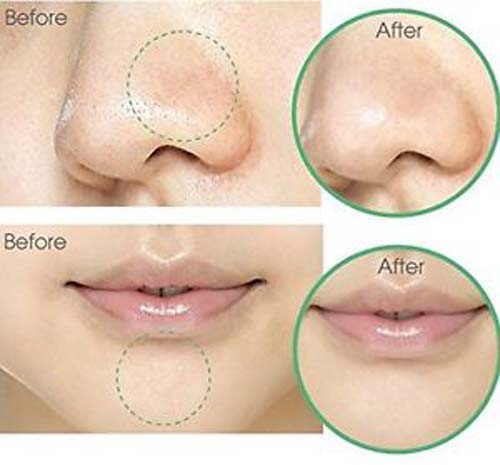How Does Sebum Work?
August 4, 2018What is Sebum?
If you are suffering from acne, then definitely you have to come across the term “sebum” at least once or twice in your life. Besides Acne, if the body is you are having shiny and oily skin, then you should totally give a serious thought to the amount of oil that is produced in the body. Therefore, it’s really more than necessary to know what sebum is. When put in simplest word, Sebum is actually the excess of the oil which is produced by the sebaceous glands of the body.The term Sebum originates from the Latin word meaning “fat”, and every single inch of your body, sparing The hands and the soles of your feet has fat. The skin actually can’t do completely without sebum in order to function, but the over production of oil can lead to the production of acne, and a very oily skin.
Why there is an excessive production of sebum in the body ?
The excessive production of sebum in the body tends to give you a very oily type of skin which is known as seborrhoea, in contrast to many people’s thinking, seborrhoea has no such connection whatsoever to the amount of oil and fat which is consumed by us in our daily diet. Those oils and fats are broken down by the digestive system and there is no way the food fat could be absorbed by our skin.
More sadly, the production of sebum cannot be controlled by any amount of skincare products you can apply on skin. You can apply any amount of face wash, astringent, soap, lotion or cosmetics but it will not reduce the production of sebum in the body. Sebum output directly depends on the hormones of the body. The output of hormones actually control the production of sebum in the body, and any amount of beauty products could not and do not have the power to reduce the production of sebum or to lubricate the dried out surface of the skin.
The Positives and the Negatives of Sebum
- Positives: The sebum when produced in right amounts is actually good for your skin. It acts as a waterproof shield for your skin and prevents too much water from getting in. Besides it also locks in the moisture in the skin. This is because of the barrier made by the fats and the lipids which does not dissolve in water and does not let the moisture go out. If there is less production of sebum in the body then it can result to dry or cracked skin.
- Negatives: Like everything else, there is also a negative side of producing too much of sebum. The over production of sebum can clog the pores of the skin and due to the accumulation of dead cells on the surface of the skin, bacteria can grow inside the surface of the skin. It results in the inflammation of the area of the skin and development of either pimples, acne or cyst.
It is therefore always prudent to consult a dermatologist when there is an outbreak of a lot of acne or pimples on your skin. It needs an expert opinion to know how to retain the balance between keeping healthy and moisturized, but not letting the skin become over moisturized so that it can’t clog the pores and result in the painful acne.




I am very impressed with your writing bitcoincasino I couldn’t think of this, but it’s amazing! I wrote several posts similar to this one, but please come and see!
I love it when people come together and share opinions, great blog, keep it up.
What’s Happening i am new to this, I stumbled upon this I’ve found It absolutely helpful and it has helped me out loads. I hope to contribute & assist other users like its helped me. Good job.
You have brought up a very excellent points, regards for the post.
I¦ve learn some excellent stuff here. Definitely worth bookmarking for revisiting. I wonder how so much effort you place to create this sort of fantastic informative site.
Good – I should definitely pronounce, impressed with your web site. I had no trouble navigating through all the tabs as well as related information ended up being truly easy to do to access. I recently found what I hoped for before you know it at all. Quite unusual. Is likely to appreciate it for those who add forums or something, web site theme . a tones way for your client to communicate. Nice task.
I really like your writing style, excellent info, regards for posting :D. “All words are pegs to hang ideas on.” by Henry Ward Beecher.
Very superb info can be found on site. “The only thing you take with you when you’re gone is what you leave behind.” by John Allston.
Hi there, You’ve done a great job. I will definitely digg it and personally recommend to my friends. I’m confident they’ll be benefited from this site.
FitSpresso stands out as a leading weight loss product currently dominating the market. This potent supplement asserts its ability to facilitate healthy weight loss naturally, free from any adverse side effects. Its formulation incorporates clinically studied ingredients that synergistically contribute to promoting natural fat burning, elevating metabolism, and sustaining enduring weight loss.
I’ve been surfing online more than 3 hours these days, yet I by no means discovered any interesting article like yours. It’s lovely price enough for me. In my view, if all web owners and bloggers made excellent content material as you probably did, the web will probably be much more useful than ever before. “We are not retreating – we are advancing in another Direction.” by Douglas MacArthur.
FitSpresso stands out as a leading weight loss product currently dominating the market. This potent supplement asserts its ability to facilitate healthy weight loss naturally, free from any adverse side effects. Its formulation incorporates clinically studied ingredients that synergistically contribute to promoting natural fat burning, elevating metabolism, and sustaining enduring weight loss.
Boostaro is one of the dietary supplements available in the market that caters to men with erectile dysfunction and sexual health issues.
Some truly fantastic info , Gladiolus I found this.
I want gathering useful info, this post has got me even more info! .